Google Pixel 8 Pro review: pixel perfect?
Google's 2023 flagship ushers in a new generation of AI and device support, but does that see it slip up on some basics?
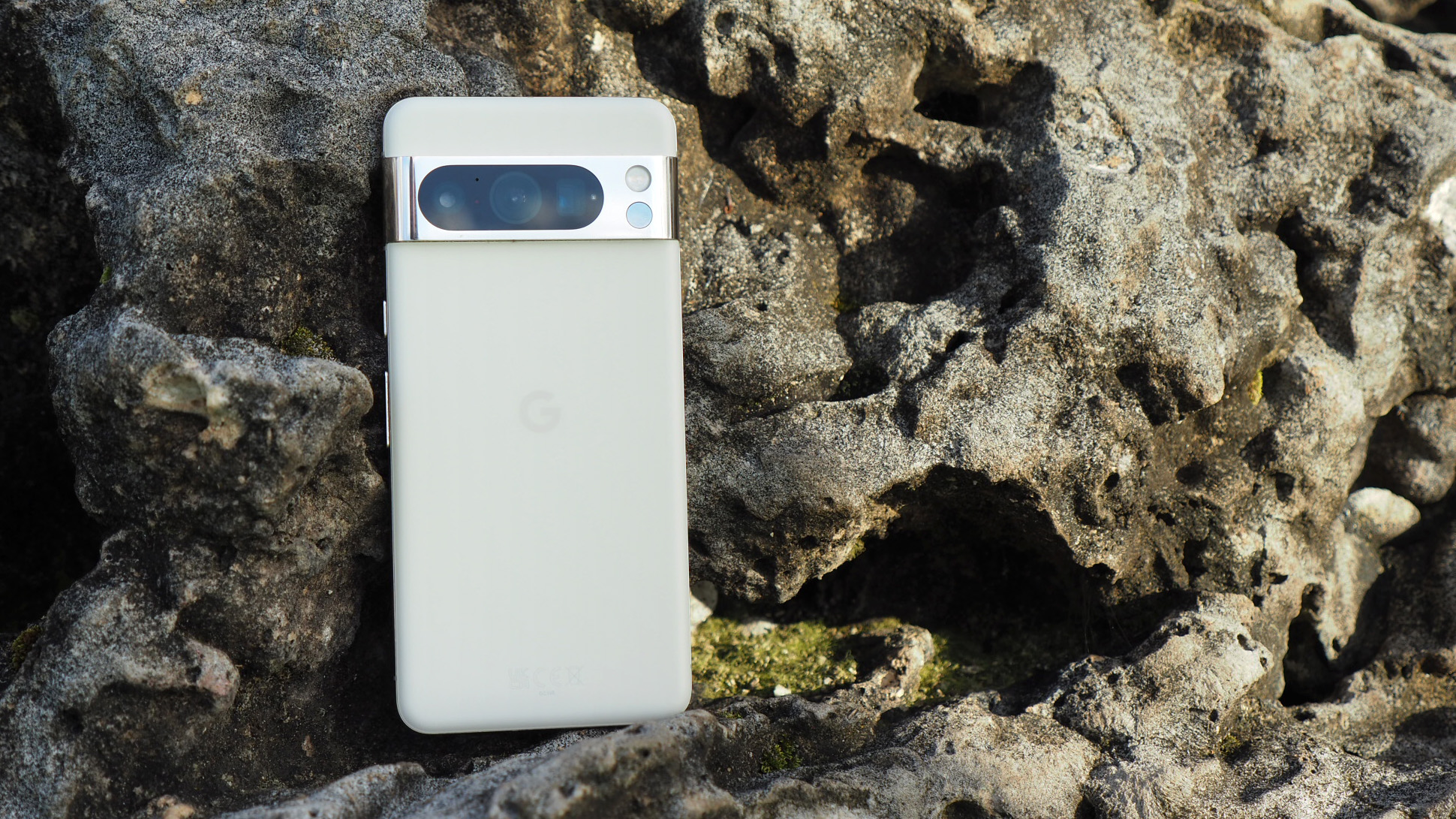
The Pixel 8 Pro could be the most accomplished Android phone of a recent generation. But in everyday use there are some minor disconnects – from battery life to refresh rates owed to the new Tensor processor – that hold back on some of the magic (not Magic Eraser). Still, if you're seeking standout design, stellar future-proofing and a stonking set of cameras then Google has a scintillating Android flagship – one that, in theory, will only improve as it benefits from ever-expanding artificial intelligence (AI) features.
-
+
Promise of 7 years of security/software/features support
-
+
Gorgeous design that stands apart from competition
-
+
Varied camera setup that's great and easy to use
-
+
Smooth software experience
-
-
Tensor G3 performance isn't perfect
-
-
Battery life still fairly average
-
-
Why the temperature sensor?
-
-
Pricier than predecessor
Why you can trust T3
The Google Pixel 8 Pro is the phone that's most grabbed my interest in 2023 so far (and there's not exactly long left as the months continue to fly by). That's because its predecessor, the Pixel 7 Pro, was my favourite phone release in 2022 – an obvious contender for the best Android phone and, in that instance, T3's Award-winning handset of the year – so surely the 8 Pro could only be even better?
Well, yes and no. I've had the Pixel 8 Pro in my hands for almost three weeks now, where I've dug deep for this review to really get to know the phone through its highs and (sometimes) lows. I've put its suite of advanced cameras and features to the test and, in general, think it's a mighty impressive handset that deserves its spot among the best phones.
That said, with its notable price increase compared to the Pixel 7 Pro, tweaks to the design, and a huge focus on artificial intelligence (AI) features, has Google taken its eye off the ball when it comes to some of the basics? After the poor show that was the Pixel Fold, I find the Pixel 8 Pro both brilliant yet frustrating: sometimes my perfect handset, sometimes unwillingly at odds with my expectations...
Google Pixel 8 Pro: Price & Availability
- Launch pricing: £999 / $999 / €1049 / AU$1699
- Storage options: 128GB/256GB/512GB/1TB
First thing's first: that all-important asking price. The Pixel 8 Pro is on sale right now, and the 128GB storage model can be yours for £999/$999/AU$1,699. There's a 256B model, too, but that'll cost you even more (£1,249/$1,199/AU$1,949). A 512GB/1TB option can also be found in some territories.
If you followed the Pixel 7 Pro's launch then you may recall its rather favourable £849/$899/AUD$1299 initial price. It was a lot less than its successor, ultimately, which does marginally reposition the 8 Pro's prospects. That said, considering the price of the iPhone 15 Pro and similar handsets, it's fully within its remit to command such a sum.
Google Pixel 8 Pro review: What's new?
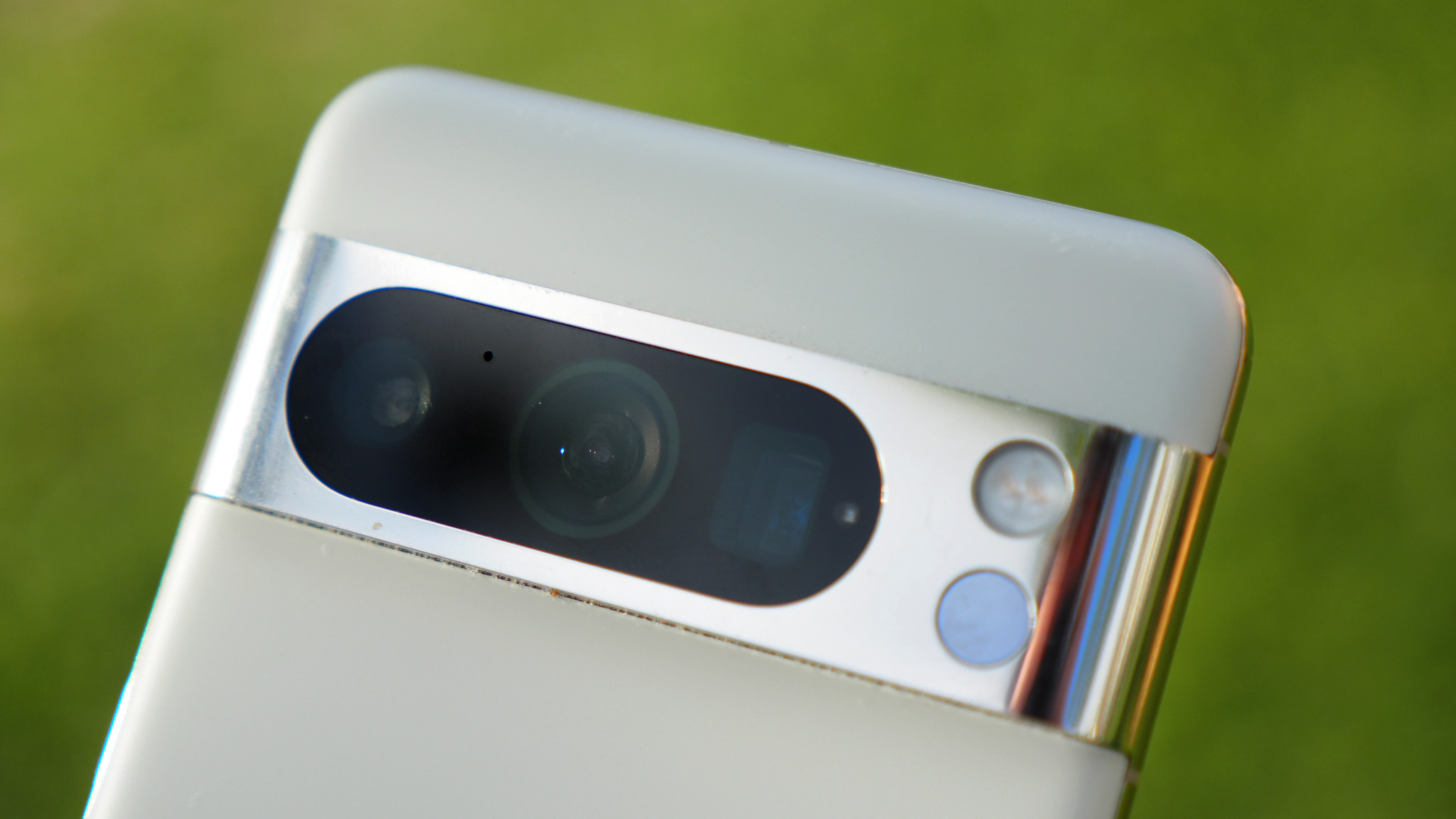
- Headlines: flat display; Tensor G3; temperature sensor; 7 years of support
While I first thought the Pixel 8 Pro was a lot like its predecessor, it's a fairly different handset overall: it removes the curved screen of the 7 Pro for a flat one; it adds the more advanced Google Tensor G3 chip (although, as I'll get to, that doesn't always translate to 'better'); there's a baseline 12GB RAM in all models; new colour variants are part of the package; and the cameras all receive an upgrade (the wide and telephoto in terms of resolution).
There's more too: slightly faster wired charging; the latest Gorilla Glass Victus 2 (still managed to scratch mine within a matter of days though); the display's increased peak brightness (up to 2400 nits – that's a mega 42% year-on-year increase); a new temperature sensor (gimmick, anyone?); and the promise of seven years of Android software, security and feature updates.
Google Pixel 8 Pro review: Design & Display
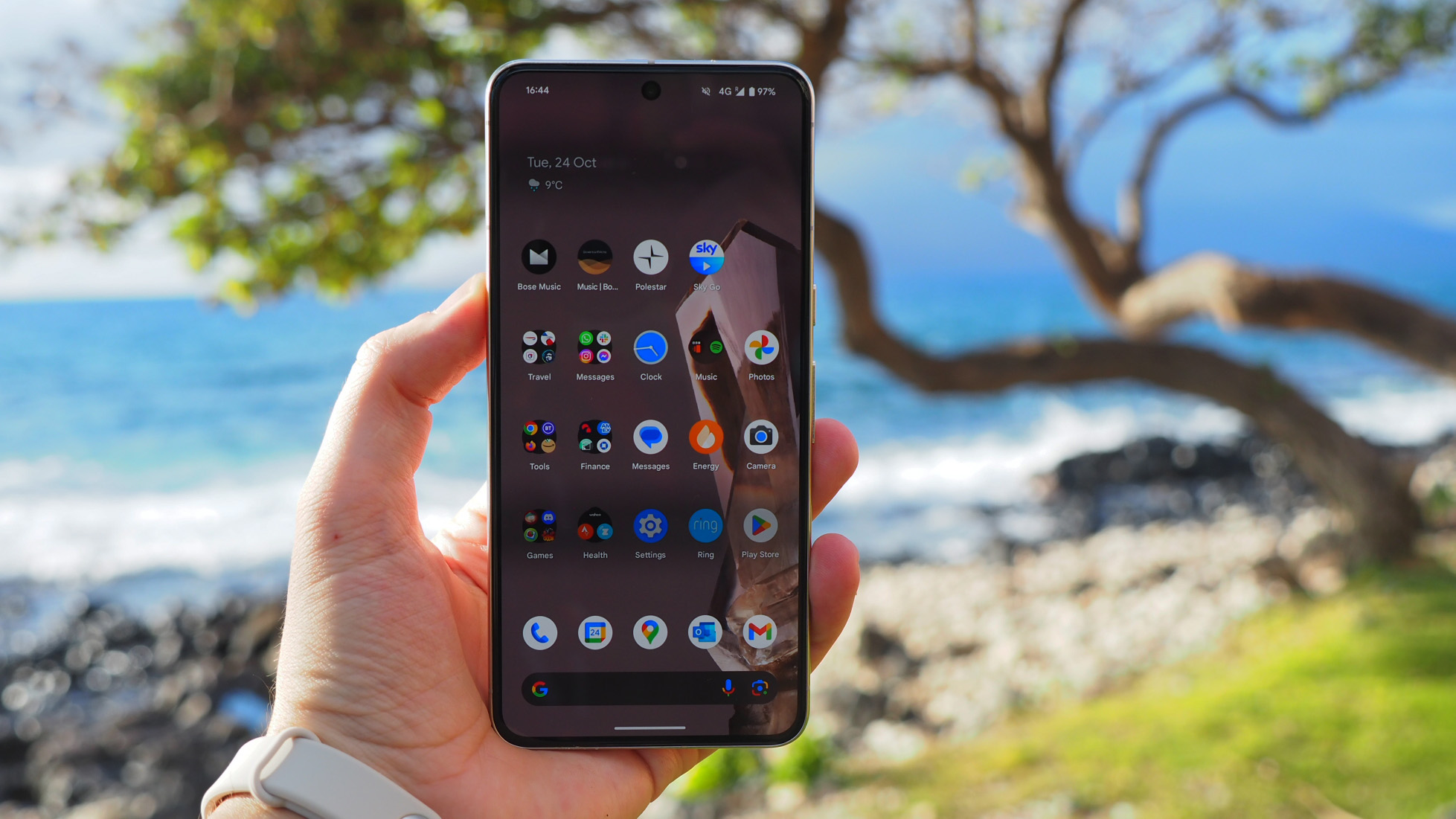
- Colours: Obsidian, Porcelain, Bay Blue
- Display: 6.7in AMOLED, dynamic 120Hz refresh, 2400 nits (peak)
Thing is, not all of those new features make me happier, oddly enough. While I can appreciate that the Pixel 8 Pro's flat screen is more practical, it just looks less special. That's a 'head versus heart' argument there, though: I know a flat screen makes more sense, it's just that I think the earlier Pixel 7 Pro looks more appealing to me overall.
The design does closely resemble previous Pixel models in many ways, though, which I can't help but appreciate: I think the Pixel 8 Pro's distinctive 'camera bar' design really helps it stand apart from the competition. Sure, that bar does protrude rather a lot (more than the 7 Pro's one did by a few millimetres) and, just as before, its sheer protrusion factor means it gets scraped easily, so I've already scuffed it (this material needs to be tougher, just as I said of the last model too).
Sadly I didn't receive the all-new Bay Blue colourway for review – that's unique to the 8 Pro model (the smaller Pixel 8 switches this for Hazel) – instead the as-photographed Porcelain model. There's also Obsidian (black), which could well be the most popular of the lot, as it looks classy. I'm appreciating the Porcelain overall, with its soft-touch feel and smooth texture. The aluminium sits well against it, despite its prone-to-scratching nature.
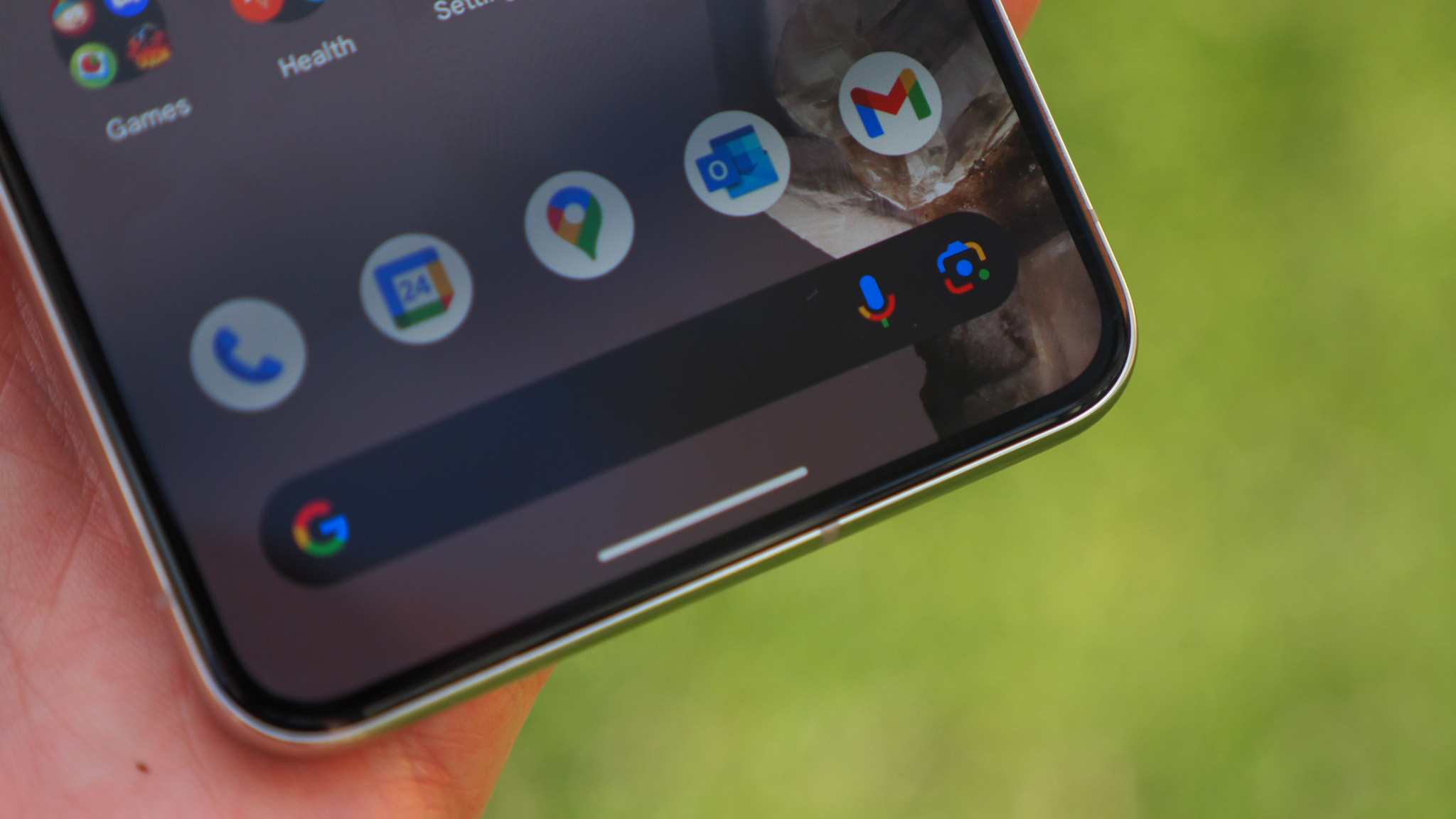
In terms of physical size and scale, the Pixel 8 Pro's 6.7-inch screen is akin to that of the 7 Pro. It's therefore typical of a flagship phone these days, just minus any gentle curves given the 8 Pro's flat-panel design decision. Still, it's a generally lovely display with some positives, but some foibles too.
I have a Pixel 7 Pro living in my bedroom drawer currently so, naturally, compared it to the Pixel 8 Pro. The newer handset is inevitably brighter, so that's job done, tick in the box. And with no curves there's also no fall-off in contrast towards the edges, which delivers a more consistent visual experience.
The newer handset also offers a dynamic refresh-rate, supposedly varying between 1Hz through to 120Hz – although Google's 'Smooth display' feature claims this "automatically raises the refresh rate from 60 to 120 Hz for some content". This is more an assessment of performance, which I'll get into below, but the Pixel 8 Pro isn't always smooth nor successful with its adaptation, depending on which applications are in play, which is disappointing.
Otherwise I can't really find any bother with the display itself: it's got all those key wants and needs that a flagship phone should possess. That's to say it's inky dark owed to its OLED technology, yet also delivers punchy and believable colours, offers more than ample resolution (at 1440 x 3120 pixels) and, as per above, has all the brightness you could need too.
Google Pixel 8 Pro review: Performance & Battery
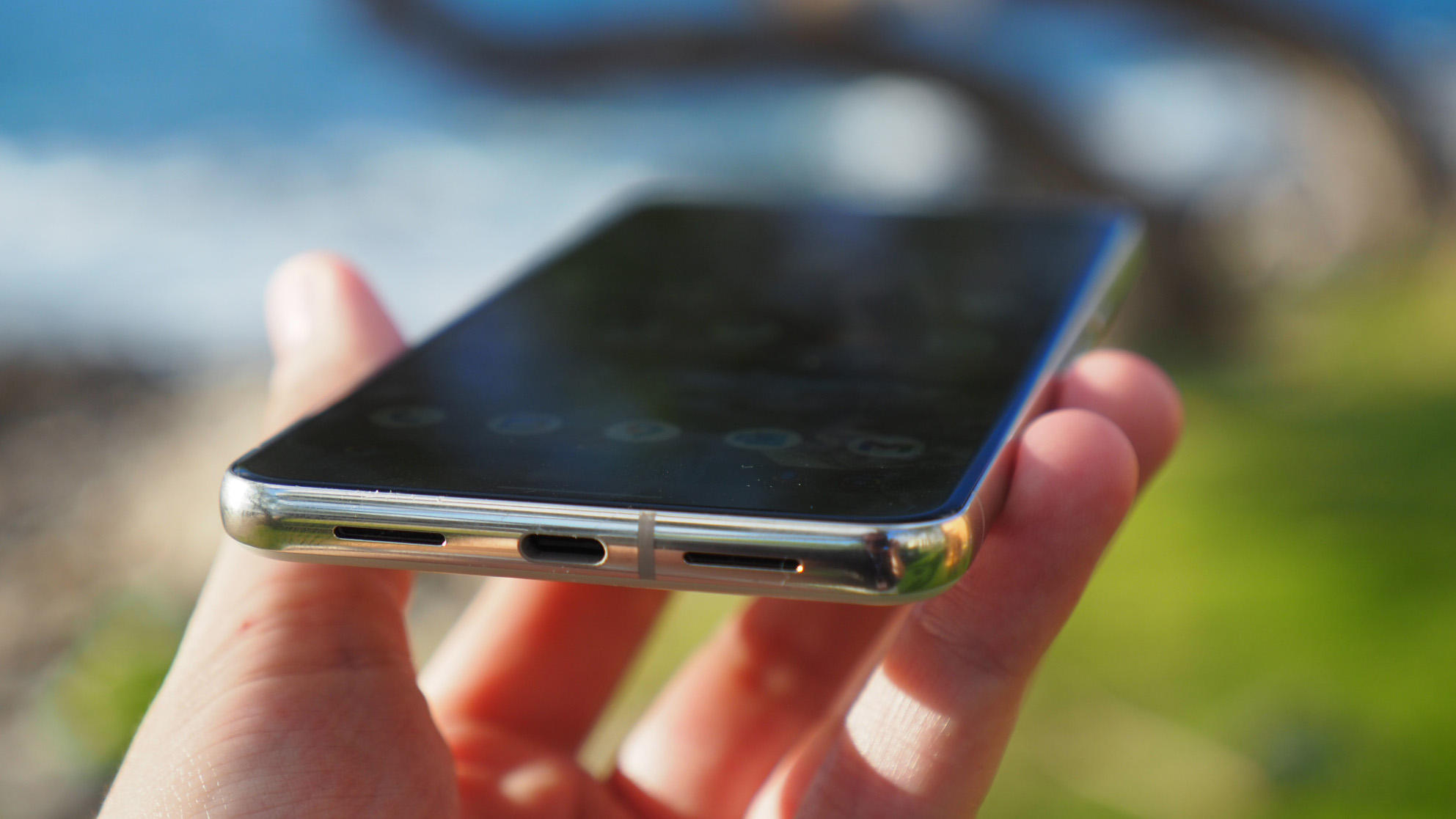
- Processor: Google Tensor G3, 12GB RAM
- Battery: 5050mAh capacity
- Charging: 30W wired / 23W wireless
Before I dig into the general performance, it's worth diving into the artificial intelligence (AI) features that Google is pushing extensively in the Pixel 8 Pro. However, some are mere imaginations at this moment in time: the call screening (automated answering by an AI bot to check for scam calls) and article summariser (from web pages when browsing) are only available in the US at present and, as a UK resident, I'm yet to experience those.
Other AI features carry on from the Pixel 7 Pro and continue to be excellent: live transcribing, for example, will create text from speech in real-time, which I find invaluable during interviews (even if sometimes the text is a little wonky owed to difficulty of recording conditions or just sheer interviewee's accent/expression). There's also Magic Eraser to intelligently remove objects from a frame, which other Android phones simply aren't going to offer you (right now, anyway – although Qualcomm's latest Snapdragon 8 Gen 3 chip is pushing such features, including in video).
There's more, too, some of which is genius yet (currently) flawed: Best Take, for example, doesn't merely use AI to generate a 'best' version of your face from a photography, it will dig into your phone's image gallery and, with faces that can be identified, will theoretically pick from those to create a sort of best-case augmented result. At least in theory, as right now it seems to have some edges that need ironing out. Save for the ethical concerns, I do enjoy this sentiment.
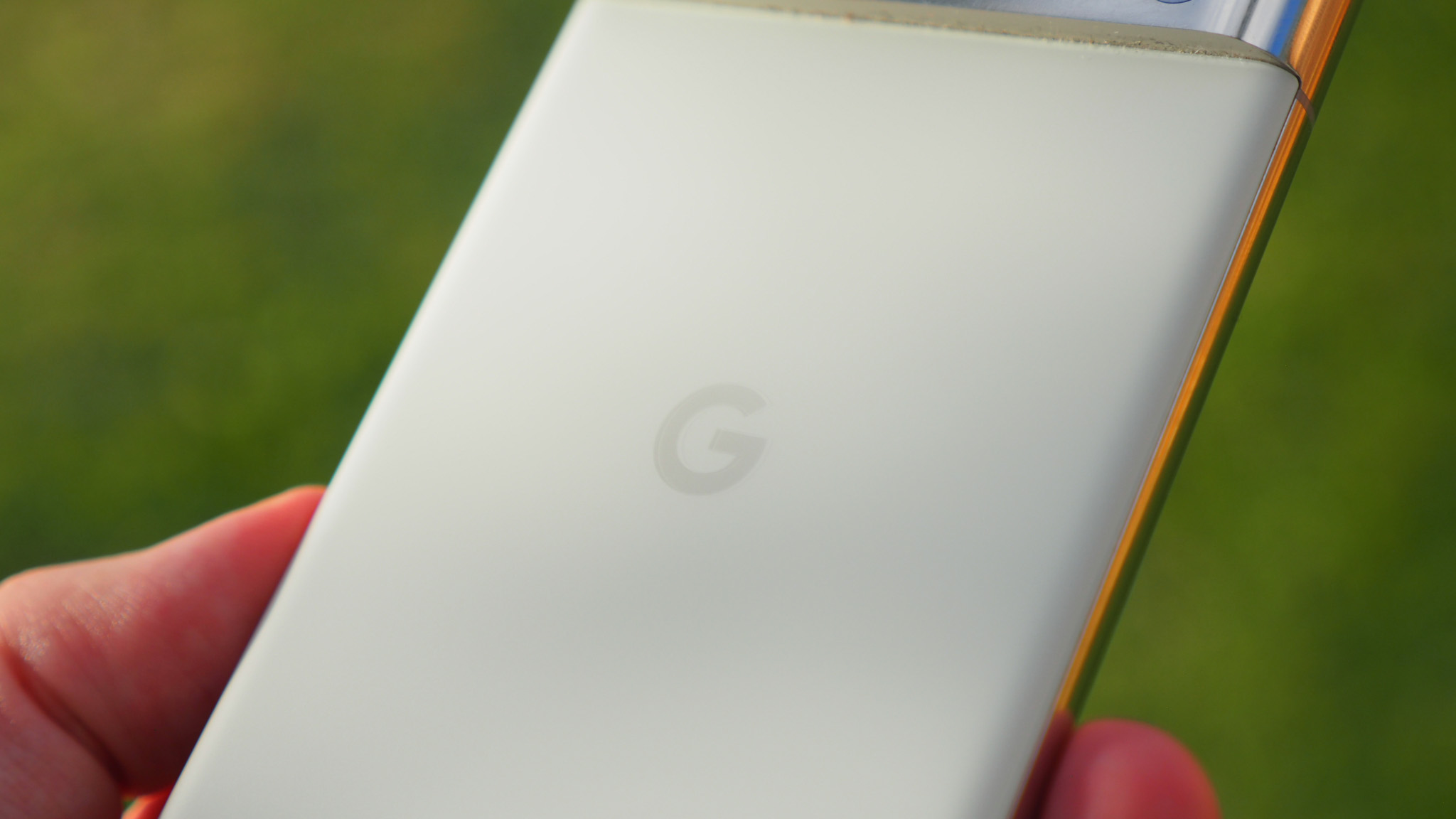
When you're not concerned with the AI features in general use the Pixel 8 Pro has peaks and troughs. I'll take the Tensor G3 chipset as a primary: it's the next step over Google's Tensor G2 and is designed for all that AI stuff as discussed above. Great. Except, hang on, it's not always quite as good as its predecessor when it comes to your everyday: when I play Mighty Doom, for example, there's always some degree of stuttering that I'd never expect from a flagship phone and there's no single or combination of settings I can switch on or off to improve the scenario.
As with any new phone you need to let things bed in, so I gave the Pixel 8 Pro the benefit of the doubt. "Oh, it's just me, this new Tensor G3 processor will level out and equal those competitiors around it," I told myself. Except, no, it hasn't quite: I've had better gaming experiences from Qualcomm's Snapdragon 8 processors (and predecessors, too) than what Tensor G3 and its apparent rapid throttling delivers. By going all-in on the AI and cloud hand-over I have to wonder if Google has taken its eye off the ball in delivering a sensor that's as competitive for the everyday as it truly should be.

I think part of the reason it functions in this device as it does is down to balance and intent to avoid overheating and therefore deliver better battery life. I've heard so many Pixel 7 Pro owners decry their handset's battery life – but, for me at least, after letting it bed-in I found it just fine over time. The Pixel 8 Pro is marginally better, perhaps, but at other given costs. It doesn't overheat, but it doesn't always deliver a true flagship performance.
But irrelevant of all those 'whys' and 'what-ifs' the actual battery life from the Pixel 8 Pro is still, well, just average. It was awful for the first three days of use, as I'd expect from almost any new phone, but the unpredictable nature of its longevity has been troubling for me: I'll often be looking to top it up within a given day, so while you'll get a 14 hour day out of it from moderate use, it's still not the best-of-best when it comes to longevity.
Unless, that is, the longevity we're speaking about is related to software updates. Because, for all of Android 14's positives, Google is taking it one step further for the Pixel 8 Pro with the promise of seven years of updates. That means your Pixel 8 Pro could last through until 2030. I'm sure it'll be a mangled ball of metal and glass come then, but at least in theory it's one less phone in the scrap heap. The promise includes security patches and feature drops too. How this will unfurl is yet to be seen, but by being a pioneer in this department sees the Pixel 8 series offer something no other Android phones can (yet).
Google Pixel 8 Pro review: Cameras
- Main: new 50MP, f/1.68 / Wide: 48MP, f/1.95 / Tele: 5x, 48MP, f/2.8









A huge part of the Pixel 8 Pro's proposition is its camera arrangement, which comprises a main, ultra-wide and 5x optical zoom trio in that rear 'camera bar' (the selfie camera up front is a 10.5-megapixel standalone). In this iteration everything is tweaked compared to its predecessor, from the wider aperture and new sensor inclusion of the main camera, to the resolution increase of the ultra-wide camera, and (of course) the abundance of AI features to enhance the results and shooting modes.
I've used the Pixel 8 Pro's cameras extensively over the weeks, from business trips to personal trips spanning across multiple States in the USA, giving it a wide range of daylight, low-light and nighttime shooting opportunities. As I said of its predecessor, this is where the Pixel 8 Pro is at its most exciting, delivering images that are consistent between lenses, believable, yet computationally enhanced to elevate shots without you needing to do a thing.








That's not to say the Pixel 8 Pro always gets it 100% right though. Sometimes shots can appear a little overworked, for want of better word – especially when it comes to shadow areas, which can be unduly pulled from the brink and exposed in a high dynamic range (HDR) way that causes a little much image noise to show as visible grain. But that's nitpicking, as, in general, the on-screen images you'll see from this camera set are sublime through and through.
I'll put it in context too: while the Samsung Galaxy S23 Ultra is widely regarded as one of the best out there, the Pixel 8 Pro's zoom cameras wipe the floor with it by offering more resolution and sharpness. Not that the 5x zoom is always perfect, mind, but it's as good as any you'll find today (I just wish it didn't take a few seconds to 'click into place' upon selection – something you'll see on screen as the preview image jumps from one place to another).

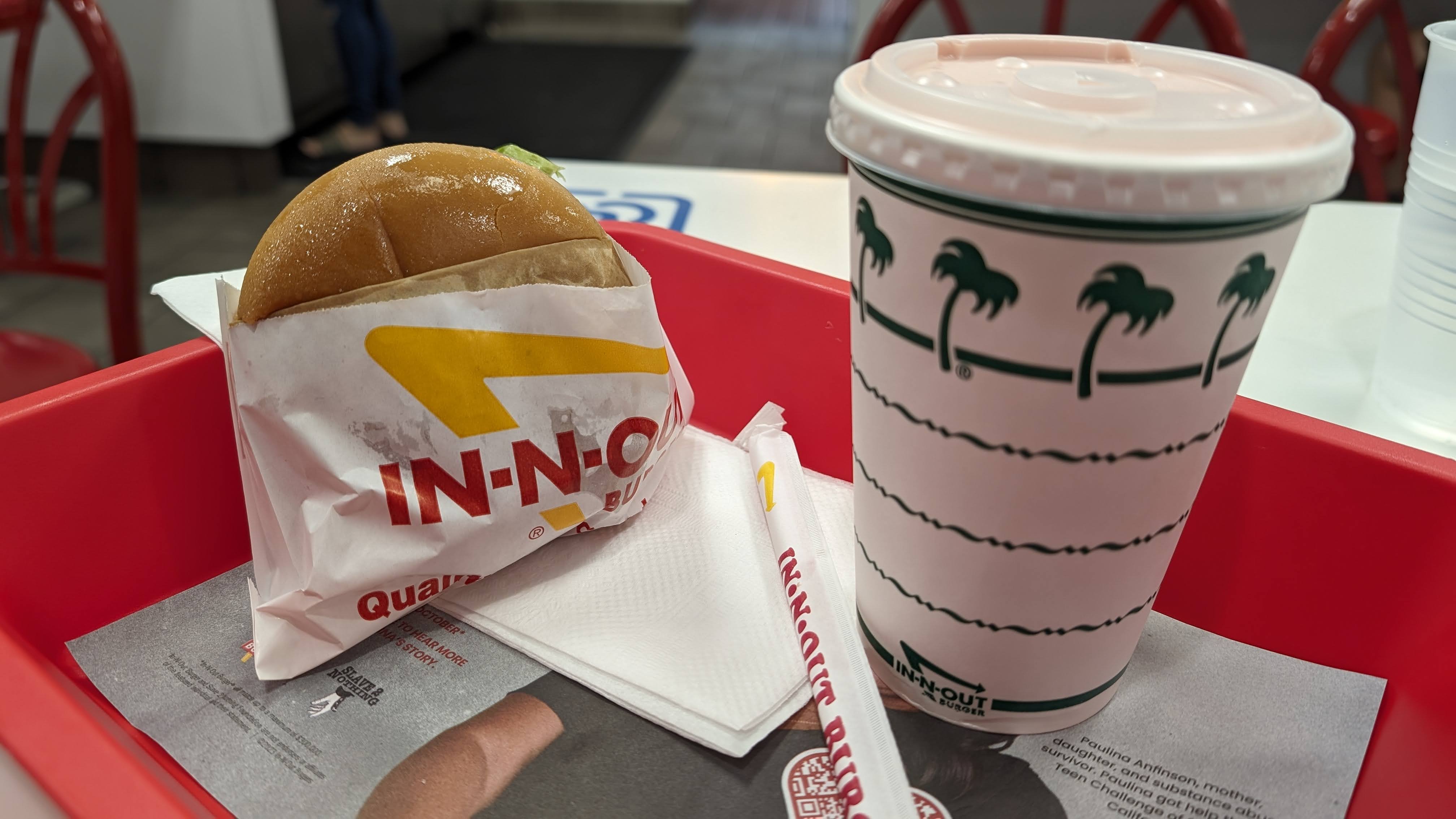
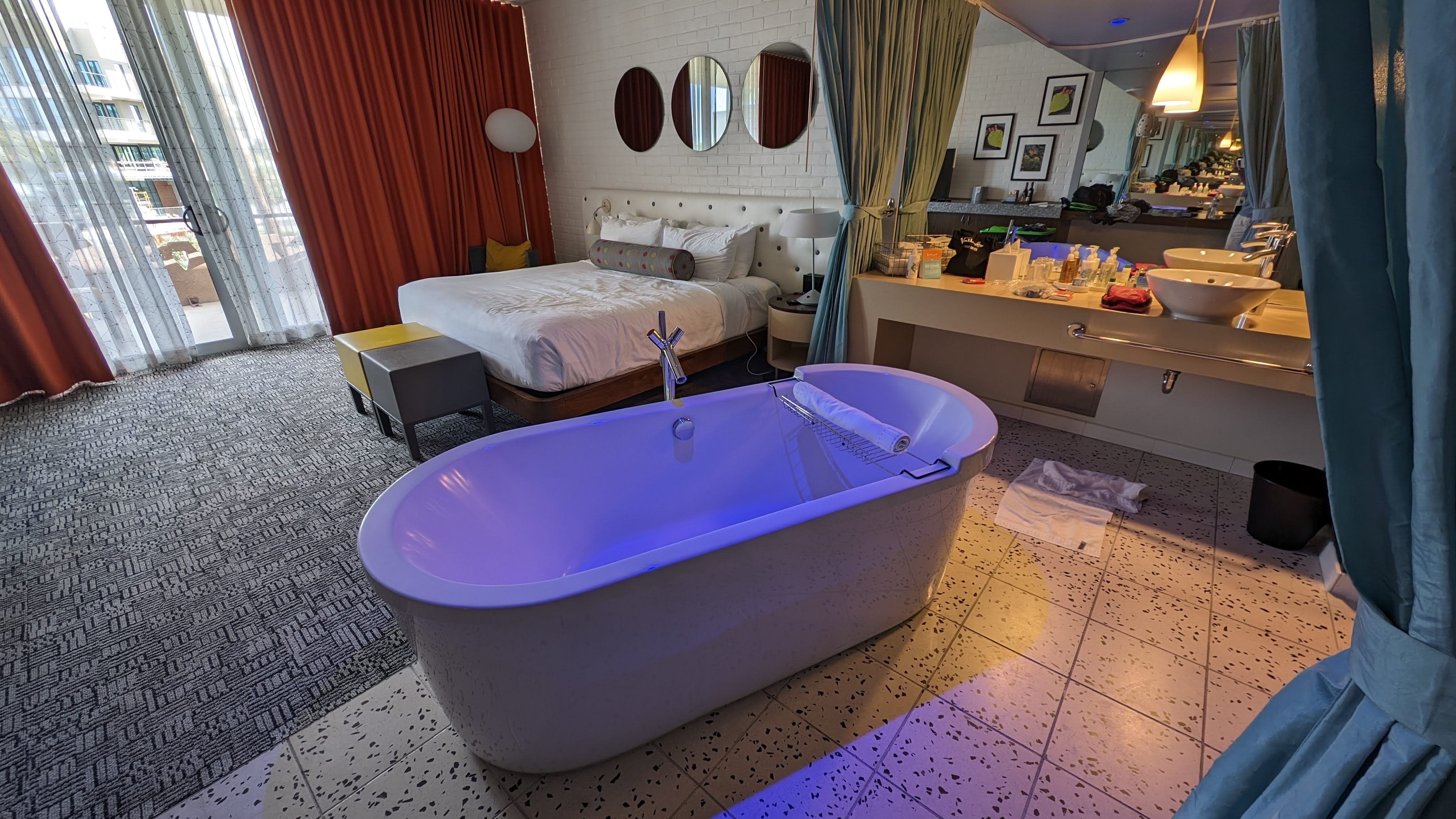

One thing I can't say of the Pixel 8 Pro that I said of its predecessor, however, is that there are "no pointless camera add-ons to be seen here". In the latest Pixel handset for some reason Google has decided to include a temperature sensor ('Object Temperature' being the preferential marketing speak). Yes, it can record temperatures. And it's... pointless? I could call it 'fun', I suppose, but I generally see it as an unnecessary venture here.
In general, then, the Pixel 8 Pro's camera arrangement is an effortless endavour in how to point and shoot. I think most people will hugely appreciate this simplicity factor – especially when results are so great. That said, I do wish certain minor aspects would be tidied up, from the 'jumping' between lens choices (it's a delayed yet visible irk) to the automatic macro mode deploying itself when not needed, there's still some polish to take the camera up to full marks.
But I'm nitpicking here really: few other phones offer a palette of cameras so varied yet consistent, while being so capable without introducing undue complexity. There's loads of easy point-and-shoot potential, lots of AI feature fun, but ultimately just consistently strong results that will challenge all the Pixel 8 Pro's closest competition, including the iPhone 15 Pro.
Pixel 8 Pro review: Verdict
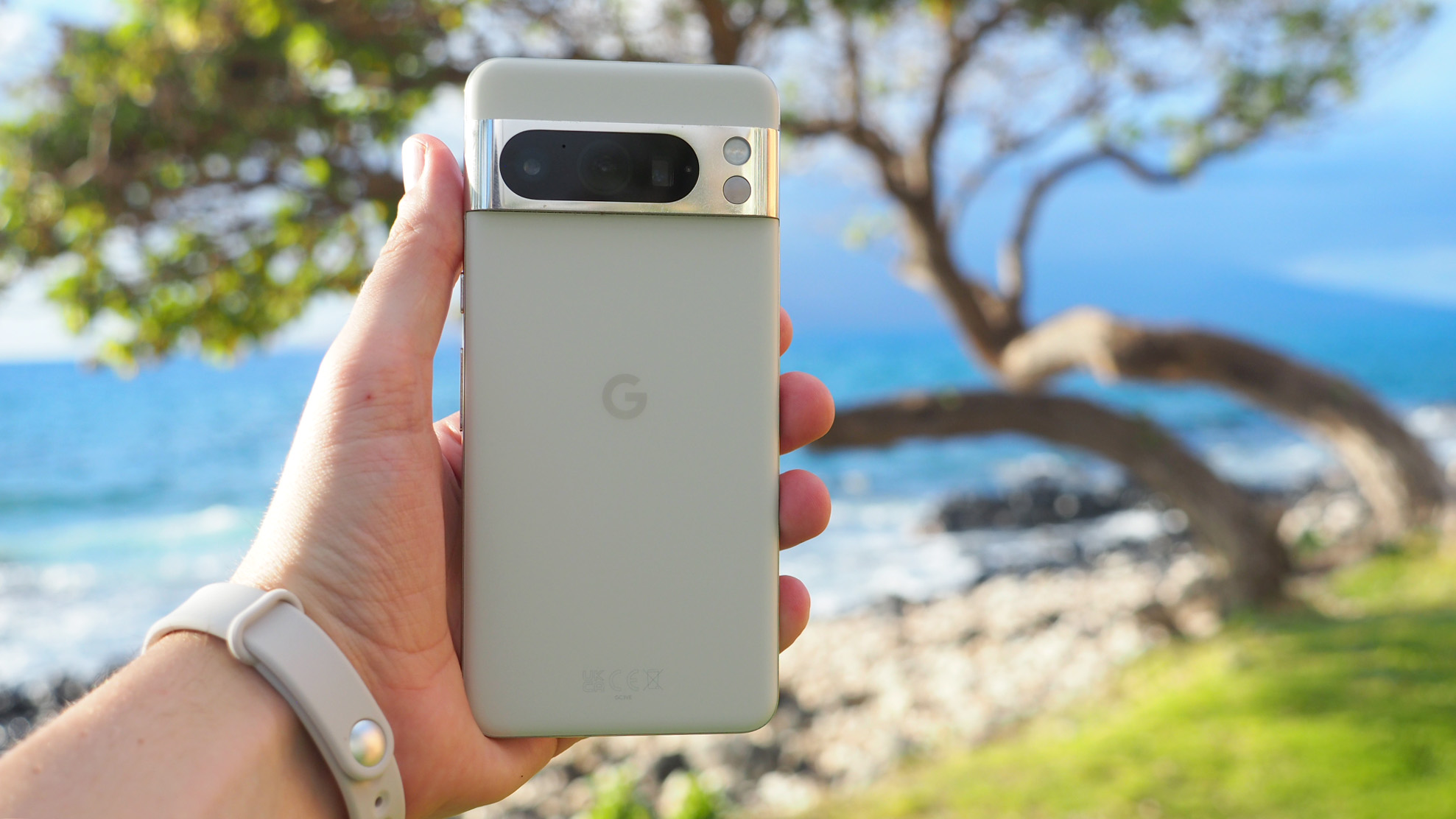
So there we have it: on paper the Google Pixel 8 Pro is perhaps the most accomplished Android phone of a recent generation. In reality, however, I've found it to be a great phone that's just sometimes short of the mark where it matters in the everyday – from battery life to Tensor processor consistency and refresh rate as a result.
Having used the Pixel 8 Pro for three weeks now, however, I'm totally going to stick with it as my daily driver. I love this phone, just as I did its predecessor. The cameras are consistent, advanced yet easy to use. The software is smooth, a breeze to use and loaded with AI potential that will only improve – plus the promise of future-proofing for seven years is a real statement of intent.
It's just that, hand on heart, I feel as though the Pixel 8 Pro is missing some of its potential – it's as though Google is knocking on so many doors, yet not all are fully open right now. Add in the increased price year-on-year and that temperature sensor oddity (who asked for that?) and there are some question marks.
All in all, however, I think the Google Pixel 8 Pro will be the best flagship Android phone for many people. I'm enamoured by its charms and its imperfections – I just don't expect that everyone will be as fully forgiving and, compared to its predecessor, there's just a little less magic this time around (and, no, I'm not talking Magic Eraser).
Also consider
Okay, so you're buying a flagship Android phone. Your options are therefore vast and there are lots of good options: grab a Samsung Galaxy S23 Ultra if you fancy a curved-edge screen plus S Pen stylus control; go off-piste and sample the Xiaomi 13 Pro and its exceptional (and massive) 1-inch main camera sensor (if you can find one to buy anywhere); or go entirely off the side of the mountain into Apple's stable and consider the (very much not Android) iPhone 15 Pro as a comparable option.
Sign up to the T3 newsletter for smarter living straight to your inbox
Get all the latest news, reviews, deals and buying guides on gorgeous tech, home and active products from the T3 experts

Mike is T3's Tech Editor. He's been writing about consumer technology for 15 years and his beat covers phones – of which he's seen hundreds of handsets over the years – laptops, gaming, TV & audio, and more. There's little consumer tech he's not had a hand at trying, and with extensive commissioning and editing experience, he knows the industry inside out. As the former Reviews Editor at Pocket-lint for 10 years where he furthered his knowledge and expertise, whilst writing about literally thousands of products, he's also provided work for publications such as Wired, The Guardian, Metro, and more.
-
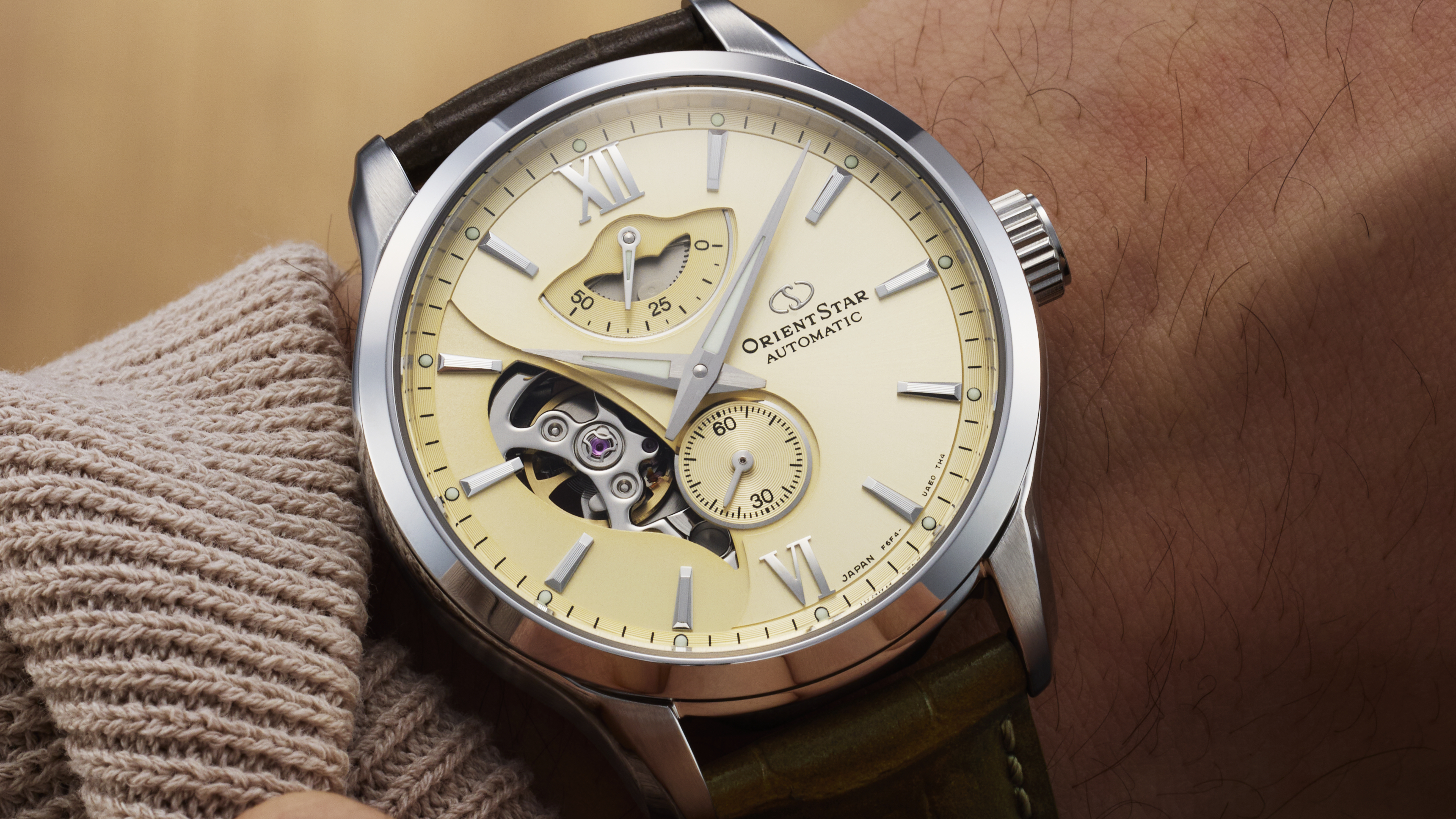 New Orient Star watches offer a glimpse of the magic within
New Orient Star watches offer a glimpse of the magic withinThere are two new skeleton pieces
By Sam Cross Published
-
 Netflix's most surprising 100%-rated sci-fi series returns with gorgeous trailer
Netflix's most surprising 100%-rated sci-fi series returns with gorgeous trailerLove Death + Robots is back for more
By Max Freeman-Mills Published
-
 Warning: Ciele’s refreshed Elite Collection may cause excessive garment envy on race day
Warning: Ciele’s refreshed Elite Collection may cause excessive garment envy on race dayFlex on your run crew with Ciele’s latest drop
By Matt Kollat Published